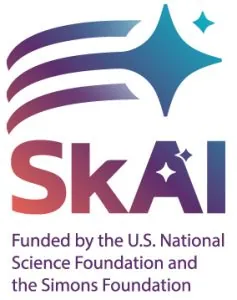
Major Advances in AI for Astrophysics: The $20 Million SkAI Initiative
2024-09-19
In a groundbreaking collaboration aimed at revolutionizing astrophysics, the National Center for Supercomputing Applications (NCSA) has announced a significant partnership backed by a $20 million initiative known as the SkAI Project. This ambitious venture is funded through a five-year grant from the U.S. National Science Foundation (NSF) and the Simons Foundation.
Introduction to SkAI Project
At the helm of this initiative is Northwestern University, leading the establishment of the NSF-Simons AI Institute for the Sky, or SkAI (pronounced "sky"). This institute will emerge as one of two dedicated AI research centers focused on equipping astronomers with advanced tools to explore the mysteries of the cosmos.
Key Partnerships and Goals
Situated in Illinois, close to NCSA, SkAI will unite a diverse group of 83 researchers across 25 partnering organizations, including prestigious institutions like the University of Illinois Urbana-Champaign, the University of Chicago, Argonne National Laboratory, and the Fermi National Accelerator Laboratory. The goal? To harness cutting-edge AI methodologies to analyze vast datasets from astronomical surveys and transform physics-based simulations that delve deeper into space exploration.
Comments from Project Leaders
Gautham Narayan, SkAI co-principal investigator and the Deputy Director of the Center for AstroPhysical Surveys (CAPS) at NCSA, expressed his enthusiasm for the project, stating, “We aim to democratize AI, making it not just for astrophysics and cosmology, but accessible for everyone.” Narayan believes SkAI represents a monumental leap forward for research, promising more interpretable and reliable AI tools.
Leading the project, Northwestern’s Vicky Kalogera commented, “This is our chance to accelerate the data-driven revolution brought about by sky surveys.” The initiative aims to expand our knowledge of celestial phenomena, from individual stars and their transient events to the complexities of galaxies and the enigma of dark matter.
Timeliness of the Initiative
SkAI is particularly timely, as astronomical projects such as the Vera C. Rubin Observatory and the CMB-Stage 4 experiment gear up to produce unprecedented amounts of data. NSF Director Sethuraman Panchanathan noted, “The scale of upcoming data is colossal. With reliable AI tools, researchers from all levels will have exciting new methodologies at their disposal, paving the way for groundbreaking discoveries.”
Commitment to Openness and Diversity
But the SkAI initiative is not merely a technical endeavor; it strongly emphasizes openness and diversity. The institute plans to engage underrepresented communities across urban and rural colleges, youth organizations, and the arts, seeking to develop educational resources spanning from high school students to postdoctoral researchers. The goal is to foster a rich tapestry of voices in STEM fields, aiming to lower barriers to access and promote a diverse workforce.
AI Ethics in Focus
Crucially, AI ethics will be an integral part of SkAI's framework. Researchers will be trained on ethical AI practices, and tools developed through this initiative will operate within an open-source ecosystem, encouraging widespread adoption.
Vision and Conclusion
The vision of the University of Illinois, particularly through the creation of CAPS, has proven pivotal for SkAI's success, providing foundational support to push the boundaries of computing and exploration. “Through innovation, we’re reaching ever more distant horizons in the universe,” Narayan concluded.
With this monumental project now underway, the world will be watching closely to see how SkAI will transform our understanding of the universe and the role AI can play in revealing its many secrets.


 Brasil (PT)
Brasil (PT)
 Canada (EN)
Canada (EN)
 Chile (ES)
Chile (ES)
 España (ES)
España (ES)
 France (FR)
France (FR)
 Hong Kong (EN)
Hong Kong (EN)
 Italia (IT)
Italia (IT)
 日本 (JA)
日本 (JA)
 Magyarország (HU)
Magyarország (HU)
 Norge (NO)
Norge (NO)
 Polska (PL)
Polska (PL)
 Schweiz (DE)
Schweiz (DE)
 Singapore (EN)
Singapore (EN)
 Sverige (SV)
Sverige (SV)
 Suomi (FI)
Suomi (FI)
 Türkiye (TR)
Türkiye (TR)